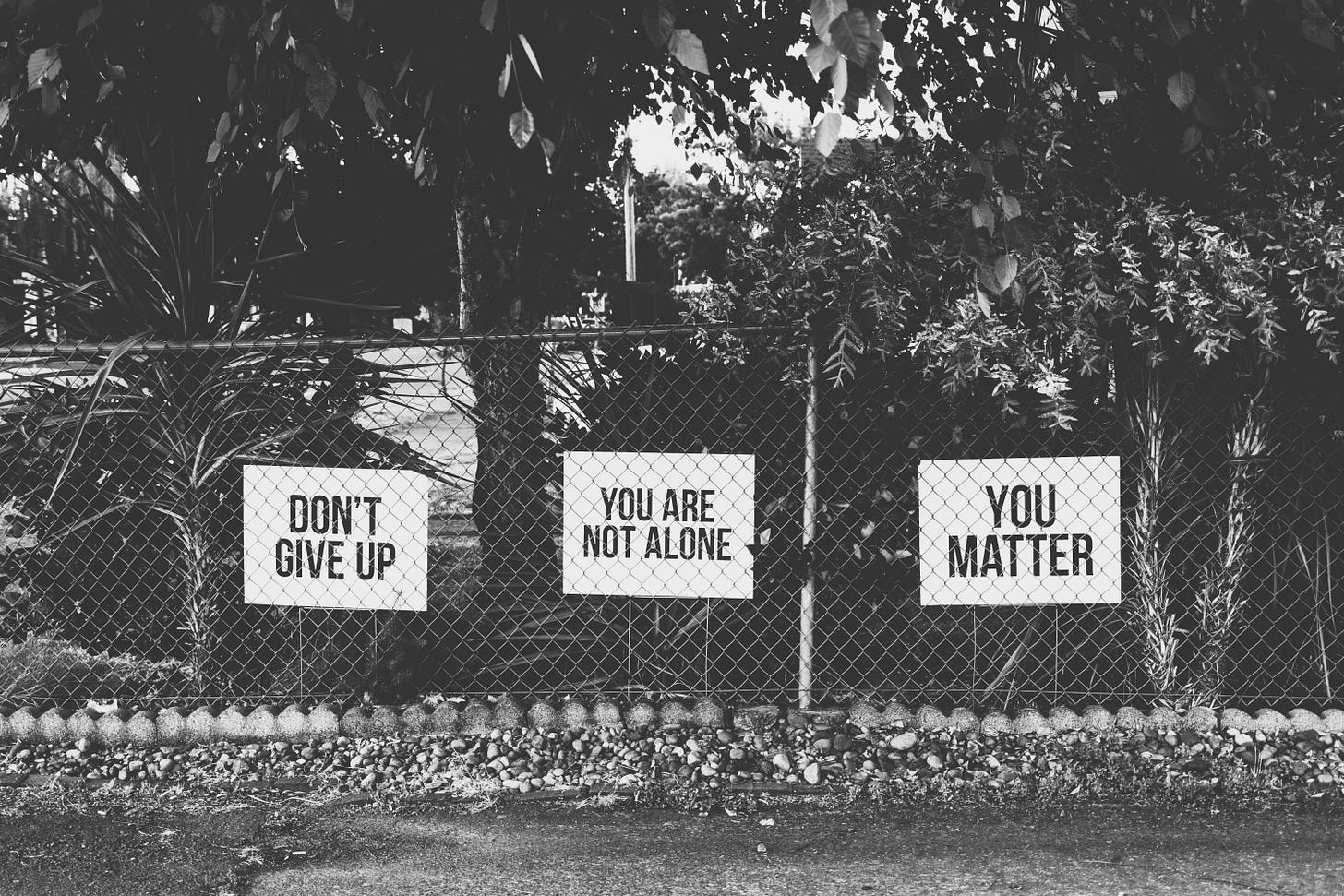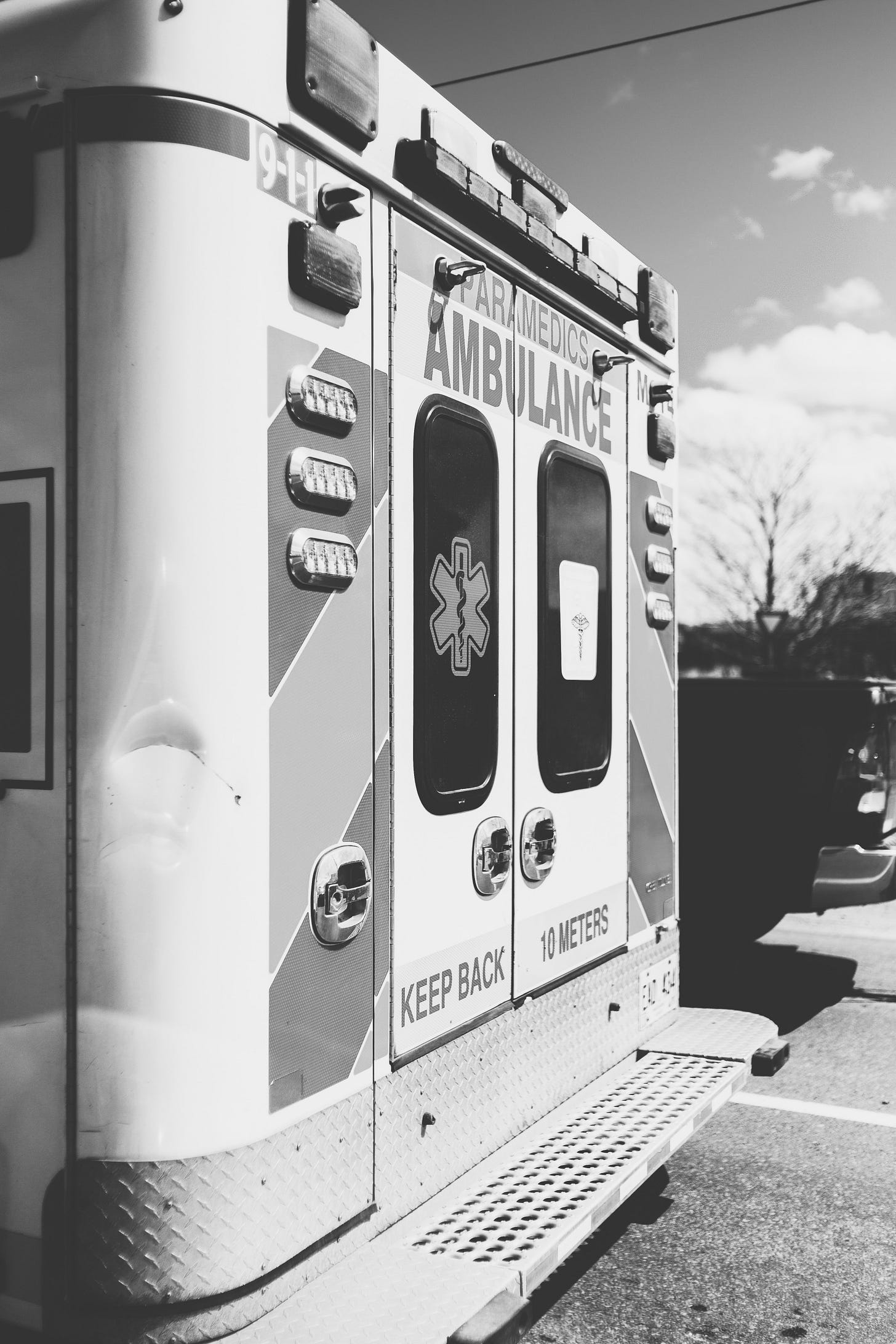Seeing the Whole Picture
How My Path to Sobriety Began & some Conclusions to which it has Led Me
Late one Saturday night,
in early September of 1996, I sat in the lounge area of the medical unit at a rehab in West Palm Beach, Florida, and watched a movie with the middle-aged man who worked overnights there, on the weekends.
I arrived about an hour before, escorted by my mother, with whom I boarded a flight from Indianapolis that afternoon. The day before, I nearly drank myself to death.

Having been arrested for public intoxication in the twilight of Friday evening, I began that day in jail. I spent one sleepless night in a concrete cell, surrounded by other drunks, pondering what my life had become; understanding that what I was doing with it, at 23 years of age, was not working. As that day ended, and Saturday night faded into Sunday morning, I watched Mister Holland’s Opus with that man, Tim, in this substance abuse treatment facility a thousand miles from home.
It was a time when there was a Blockbuster in every strip mall, and as I sat at a little table, doing my intake paperwork with the detox nurse, Tim, a behavioral health tech, approached me as he made his hourly rounds through the unit.
“Hey, Tom,” he said, “on the weekends, we rent movies for the patients. We have a couple to choose from. If you’re up for it, we could watch one of them, once you finish your paperwork and get settled.”
“Sure,” I nodded.
The other option was a horror movie. At the time, my life resembled one, so I had no interest in watching another. Instead, I chose the film about another man whose life became nothing like he wanted, let alone envisioned. Even at the time, it seemed prophetic.
If you’ve seen the movie, you know that, although the character’s life didn’t go as he hoped it would, it became something more beautiful than he could have imagined, and it did so at about the age when I found myself in treatment for alcoholism. I longed for my life to mean something. And, watching that film at what was the lowest point of my young life offered hope that one day I might find the type of fulfillment that Glenn Holland, the high school music teacher, eventually did.
I’ve spent the past three decades working with people who suffer from addiction and related issues.
Ten years in, I began feeling disillusioned, not with the work or the clientele, but with my peers. I thought even the best among them failed to see the whole picture. Year after year, decade after decade, I watched them stand on their soap boxes, squabbling over what was the “right” way to treat addiction, touting the newest approach, criticizing other approaches and the people who carried them out, patting themselves on the back, all the while, for helping one person at a time find recovery.
I had bigger questions. Let’s talk about why, as a society, we numb ourselves en masse, I thought. How do we put an end to that?
Even when I was drinking heavily and tragically, I knew I was numbing myself. I knew it was not about the alcohol. Amidst an existential crisis, I was using alcohol to change the way I felt. I’m not saying this is how addiction works with everyone, but it’s how it worked with me. I was in absolute misery, and I didn’t know what else to do besides escape what I was feeling, as I’d watched so many other men in my life do themselves.
One afternoon, when I was in the third or fourth grade at Columbian School (now a functioning treatment facility, by the way), in Kokomo, Indiana, I remember very clearly, the teacher posing a question to us all.
“What do you want to be when you grow up?”
By that time, my aspirations had probably shifted from becoming a fireman to a Major League Baseball player. I don’t recall how anyone responded, besides a confident little girl with braided hair named Angie Lee, who said “I’m gonna be a doctor.”
About 15 years later, on a pre-autumn Friday, the day before I watched Mister Holland’s Opus, I laid in bed all day, drunk on Jack Daniels, or maybe Jim Beam. I can’t remember which. By that time, I’d been existing that way intermittently. Still living at home with my mom and dad, I stayed drunk in my bedroom for days on end, coming out only when no one else was around and only long enough to get more liquor.
It was an ugly and painful summer. I had been working as a carpenter for a travelling hardwood flooring contractor. We went from one major city in the Midwest to another, working 12 to 16-hour days until we either finished a job or ran out of material. We would drive hundreds of miles back home from the jobsite and wait there, either for the next job to begin or the next load of lumber to arrive from Canada. Sometimes it was for a few days, sometimes a week or two, and I’d fallen into a pattern of staying drunk while I was at home, and trying to remain dry while I was on the road. It wasn’t going well.
Naturally, everyone around me was concerned, but they didn’t know what to do with me. My youngest sister had moved back home after finishing college and spent that Friday afternoon trying to rouse me from my stupor. She would try to wake me. I would pretend to be asleep. Then, afraid I would not come to, she would call an ambulance. We went through this several times that day.
The day was overcast and muggy. Each of the four or five times the paramedics arrived, my sister would escort them to my bedroom. They would talk to me, and I would respond to them. They would ask if I wanted to go to the hospital, and I would say no. But, finally, in the early evening, I got in the ambulance.

I don’t remember the ride there, or how and when they put me on the gurney in that emergency room. The memory begins with me yelling at a nurse who was probably 65. It must have been quite a scene. I made enough of a commotion that other staff members came to the woman’s aid. One of those staff members was Angie Lee.
Angie and I were never close, but we watched each other grow up. We led parallel lives that intersected not only in elementary school, but in high school classes for gifted students. Unlike me, she took the classes seriously. But she knew me well enough to understand I was capable of much more than whatever landed me in the emergency room that night.
I will never forget the way she calmed and consoled me, putting her palm to my forehead as she looked deep into my empty eyes. I’m sure she was stunned at the sight of me in that condition, with bourbon on my breath, and its smell oozing from my pores. It was then that Angie Lee posed what seemed the biggest of questions.
“Tom,” in the most lovingly soft and whispery voice, she asked, “what are you doing with your life?”
She saw me. It was a time when I needed to be seen. She saw the whole picture. Since that moment, I have spent my life trying to see the whole picture.
I imagine there are a fair number of people in my life who see me as a guy who couldn’t handle his liquor. To them, I was a guy who drank like a fool, a broken person who sobered up and has since spent his life trying to help other broken people sober up. At one time, that is how I saw myself. Not anymore.
All through high school, I promised myself I would never become an alcoholic, like my older brother. Yet, I did. In the beginning, I was dying to make sense of it. At the time, I was told that knowing why I became an alcoholic would not help me stop drinking. Over time, I learned more about the reasons why I drank the way I did. Had I understood then what I understand now, I may have never stopped.
Here’s what I can tell you for sure. Whether it is alcoholism or anxiety or something else, we all suffer. Everyone. I didn’t drink the way I did because I was broken, or because there was something wrong with me. One might even say it was a natural response to my life experience. And the path to healing was the path to myself.
Addiction is a betrayal of self, but it is by no means the only one.
It was one of the ways I dealt with the distress that came with being something less than myself. The more I have focused on the idea of us being true to ourselves, the more I realized that so many of us are not even trying to do that. We abandon ourselves, and it leads to an enormous amount of pain, just as it did in my case.
As the years passed and I continued to grow, I reached a troubling conclusion. We’ve created a society where most of us would rather experience practically anything besides the way it feels to be who we are.
So many of us go through life without ever considering what we actually want. We just do what we think we’re supposed to do or, maybe, what is expected of us. Often, we earn the diploma and get the job and buy the house and wed the spouse and we raise the children. Then, one day, we wake up and realize our lives are half over. It was so long ago when we sold ourselves out, we can’t even remember exactly how or when we did it.
We scramble to course correct. Maybe we buy a flashy car or file for divorce, or both. Maybe we decide to see a therapist, to whom we pour out our hearts, maybe being real with another human being for the first time in our lives. Then, there’s at least a 50/50 chance this person dismisses our grief, explaining that we’re simply having a mid-life crisis. It happens to the best of us.
We live in a time when there is a lot of talk about breaking the stigma around mental health. More and more, we encourage people to get professional help. More and more people are becoming open to it. Maybe we should be asking the big questions. We would do well to stop and think about why so many of us need therapists in the first place. I have a theory.
There’s a reason why so many of us experience that “mid-life crisis.” Maybe we’re doing it wrong. Maybe we should change something. Maybe we should figure out why so many of us have such a difficult time living in our own skin.
Why is it so hard for us to be who we are?
There was a time when I would have chosen to be anyone other than who I am. I would have rather experienced practically anything besides the way it felt to be who I was. But, that part of my life is over. It’s no longer true. I appreciate who I am as a human being, and I respect myself. Imagine that.
When it comes to experiencing life, the way we’ve been doing it isn’t good enough. If it was, there wouldn’t be so many miserable people among us.
Hey folks,
I posted this piece a few months ago, in a slightly different form and with different intentions. Originally, this was to make up most of the introduction for a much larger work. I left it behind the paywall. But, as I read through it again yesterday, I thought it might be a good way to introduce myself to this community.
Thank you for reading. Please like, comment, and share if you wish. Or, maybe introduce yourself and tell me where in the world you are.
Best,






Just want to say thank you for having the courage to write about your life and how you had the strength to change. How maybe the question that your friend asked you while you were in the hospital helped give you a push into sobriety.
When people are kind and care about others. Their words have a positive impact on the people around them.
Yes, the huge question of why,en masse, do we want to escape just being. So well put. Thanks for a spot on perspective.